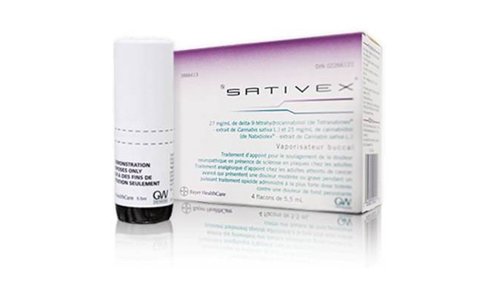Nabiximols as an agonist replacement therapy during cannabis withdrawal: A randomized clinical trial
One in 10 people who try cannabis go on to become dependent. Cannabis withdrawal symptoms are a major barrier to quitting cannabis among dependent users. This world first double-blind randomized controlled trial of Sativex Spray (derived from whole cannabis extracts) has shown significant reductions in withdrawal symptoms compared with placebo.
A total of 51 treatment seeking patients were randomised to Sativex spray (nabiximols) in two in-patient facilities in NSW.
Participants were prescribed nabiximols (comprising both THC and cannabidiol) or placebo, with standardised psychosocial interventions over six days during a nine-day admission.
Nabiximols significantly suppressed withdrawal-related irritability (among the most severe and clinically significant symptoms in the outpatient setting), cravings, and depression and patients stayed in treatment longer. However, nabiximols was no more effective than placebo in encouraging long-term reductions in cannabis use. The authors suggest that the follow-up outcomes may not be surprising given there is little precedence for medication-assisted withdrawal to affect long-term abstinence without ongoing support. These findings, however, identify a promising approach for cannabis withdrawal management and strengthen the case for agonist substitution medication for cannabis withdrawal. A direct comparison of nabiximols with other cannabinoid agonists (dronabinol or nabilone) may be of interest in the future to test whether the THC-CBD combination has additional therapeutic benefits over THC alone. It will also be important to test the medication in an outpatient setting where most cannabis dependence is treated.











